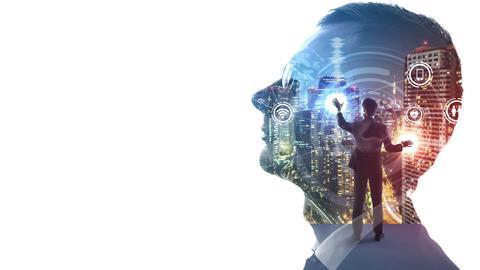Lawyers of the future may bill their clients by 'units of attention' monitored by computers directly connected to their brains, a horizon-scanning report by the Law Society suggests today. Neurotechnology, Law and the Legal Profession examines some of the questions that will arise from the adoption of brain-computer interfaces such as those already being developed to help people overcome physical disabilities.
'The debate on whether and how we should make our brains ready to be "plugged" into technical devices must begin today,' Dr Kion Ahadi, director of strategy, futures and insight writes in the report's foreword.
Neurotechnologies are technologies that interact directly with the nervous system, connected by body-worn sensors or even a chip planted into the brain. According to the report, such technology is already being used to treat neurological conditions such as Parkinson’s disease and to monitor employees’ attention when they are working. 'Neurotech is also of great interest to the military – with the prospect of cognitively enhanced cyborg super-soldiers on the horizon.'
One intriguing possibility is that of an ‘internet of brains’ - which might not necessarily be restricted to human brains. The report notes that researchers have already shown that cockroaches can be 'steered' by the power of human thought.
But according to the report, legal implications of neurotechnologies include:
- Concerns about privacy and surveillance because of the large amounts of brain data that such systems are likely to accumulate. Such data may give rise to new powers to manipulate people.
- Issues of equity and neurotechnological discrimination if some people in society are augmented with enhanced mental capacities and others are not.
- The possibility of workplace brain monitoring by employers. 'Whereas the possibility of downloading new skills is not a current option, workplace brain-monitoring is, and it is not hard to imagine that some of this technology might generate disquiet and questions of employment law.'
- In crime and punishment, could defendants claim their criminal behaviour is a result of having their neurotech device or even brain hacked? Could the state mandate neurotech implants or other types of brain monitoring?
Overall, the report asks how strict should any regulatory environment be, given the potentially enormously valuable impact of neurotechnology in treating conditions such as dementia and depression?
Report author Dr Allan McCay said: 'This tech is coming, and we need to think about regulation. Action is needed now as there are significant neurotech investors such as Elon Musk and Meta (Facebook). We need law reform bodies, policy makers and academics to be scrutinising these technological advances rather than waiting for problems to emerge.'
This article is now closed for comment.




























17 Readers' comments